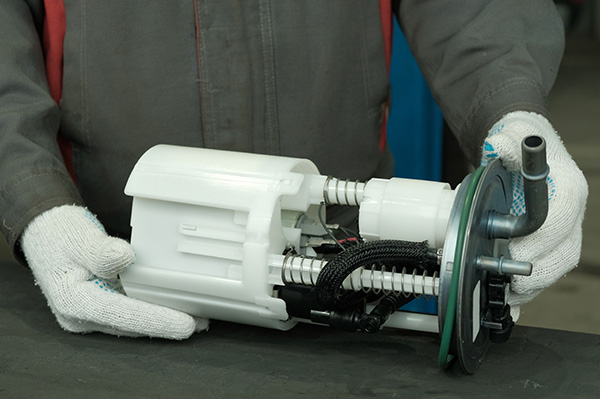
Your car's fuel pump keeps the engine running by delivering fuel from the tank to the engine at the right pressure. If the fuel pump fails, your car won't start—or worse, it could stall while you're driving. Understanding the common causes of fuel pump failure can help you prevent an unexpected breakdown and costly repairs.
Contaminated Fuel
One of the biggest threats to your fuel pump is contaminated fuel. Dirt, debris, and water can make their way into your gas tank, either from low-quality fuel or through condensation buildup. When these contaminants get pulled into the pump, they can clog the fuel filter, causing the pump to work harder. Over time, this stress can lead to overheating and failure.
Using high-quality gasoline and keeping your tank at least a quarter full can help minimize the risk of contamination. Regularly replacing your fuel filter ensures that debris doesn’t make it to the pump.
Running on Low Fuel
If you frequently drive with a nearly empty tank, you're putting unnecessary strain on your fuel pump. The pump relies on gasoline to stay cool and lubricated. When the tank is low, the pump is exposed to more air, which can cause it to overheat. This excess heat can wear out the internal components and lead to premature failure.
To extend the life of your fuel pump, try to keep your gas tank at least one-quarter full at all times. This simple habit can prevent overheating and reduce the chances of your pump wearing out prematurely.
Electrical Issues
Like any electrical component, your fuel pump relies on a steady flow of power to operate correctly. A faulty relay, corroded wiring, or a bad ground connection can cause intermittent power loss, making the pump work harder than it should. In some cases, the pump may even stop working altogether.
If your car is having trouble starting, stalls unexpectedly, or you hear a whining noise from the fuel tank, it could be a sign of electrical issues affecting your fuel pump. Regular inspections can help catch wiring problems before they lead to complete pump failure.
Wear and Tear Over Time
Fuel pumps don’t last forever. Over time, the constant operation of the pump can cause its internal components to wear down. Most fuel pumps are designed to last between 100,000 and 150,000 miles, but this lifespan can vary depending on driving habits and maintenance.
If your vehicle is high-mileage and you've never replaced the fuel pump, it may start showing signs of failure. Symptoms include difficulty starting, loss of power, and hesitation when accelerating. Replacing an aging fuel pump before it completely fails can save you from being stranded on the road.
Overheating Due to Clogged Fuel Filter
The fuel filter is responsible for keeping contaminants out of the fuel system. When it becomes clogged, the pump has to work harder to push fuel through, leading to overheating. An overworked pump is more likely to fail, and replacing a fuel pump is much more expensive than changing a fuel filter.
Regular maintenance, including fuel filter replacements, can prevent unnecessary stress on your fuel pump and extend its lifespan.
Signs Your Fuel Pump Might Be Failing
A failing fuel pump doesn't always stop working suddenly. In many cases, it will show warning signs before completely giving out. Here are some symptoms to watch for:
- Difficulty starting: If your car takes longer to start or requires multiple attempts, the pump may not be delivering enough fuel to the engine.
- Loss of power: Hesitation or sputtering while accelerating could indicate inconsistent fuel flow.
- Engine stalling: If your car stalls while driving, especially at high speeds, the fuel pump might be losing pressure.
- Whining noise from the fuel tank: A loud whining or humming sound can be a sign that the pump is struggling or about to fail.
If you notice any of these signs, it’s best to have your fuel system inspected to prevent further damage or an unexpected breakdown.
In Lincoln, NE, where long highway drives and varying temperatures can put extra strain on your vehicle, keeping your fuel system in top shape is important. Don't wait for your fuel pump to fail—routine inspections and maintenance can save you from costly repairs down the road.
Avoid the hassle of a failing fuel pump! If your vehicle is showing signs of trouble, bring it to inMOTION Auto Care in Lincoln, NE, for a professional fuel system check. Don’t wait until your car doesn’t start—book your service today!